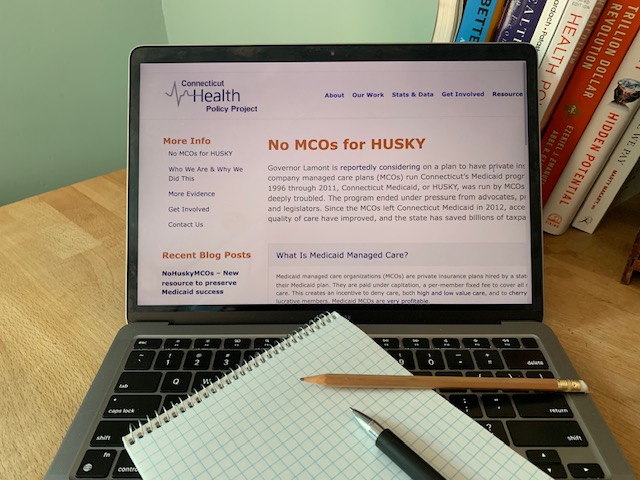HUSKY evaluation call is broad; Includes MCOs but is not biased

Updated August 15, 2024 with Questions and Answers to DSS
Last month, DSS released their promised request for quotes (RFQ) from current contractors to evaluate Connecticut’s Medicaid program. (Questions from potential RFQ applicants and DSS’s answers are here.) The RFQ includes important broad priorities that are shared by advocates and other stakeholders, including an evidence basis for recommendations, data transparency, and ensuring the feasibility of policy options in Connecticut’s successful program.
The short RFQ starts
CT is seeking to develop a strategy to further improve the Medicaid program through innovative healthcare delivery and payment models that improve member experience, health care outcomes, population health, cost containment and health equity to support HUSKY Health members. The strategy shall be member-centric and focused on strengthening member access, experience, healthcare quality and outcomes and will incorporate interventions that address prevention, early intervention and integrated services to advance high-value care, improve population health, enhance coordination across service systems (including non-medical systems) to address social determinants of health, engage and support providers, and further improve cost containment and predictability.
Priorities include member experience, provider engagement and stability, prevention, early intervention, and disease management, healthcare costs, payment models, and managed care.
While the RFQ mentions returning Managed Care Organizations (MCOs) to the program as a potential option, it requires analysis of “anticipated impact on quality, member experience, data and expenditure transparency, and cost effectiveness . . . compared to the current structure in CT.” There is no evidence from other states that MCOs either improve quality or lower costs. MCO options must include management of Long Term Services and Supports (LTSS).
Advocates, legislators, and others have raised grave concerns about MCOs in HUSKY. When the Rowland administration engaged MCOs to run the HUSKY program in 1996, costs jumped and access to care dropped. Since 2012, when the state removed MCOs and replaced it with care coordination, more providers participate in the program and we lead the nation in quality of care and cost control.
There are concerns that the RFQ timeline was extremely tight and only current state contractors were eligible to apply. A prior attempt by the Lamont administration to find savings across the state budget ignored evidence doing a very poor job of assessing options. Thankfully, those unsupported recommendations were not acted on. Advocates are hopeful that this time we’ll have an honest assessment of options that could improve HUSKY, not a return to the failed MCO model.

